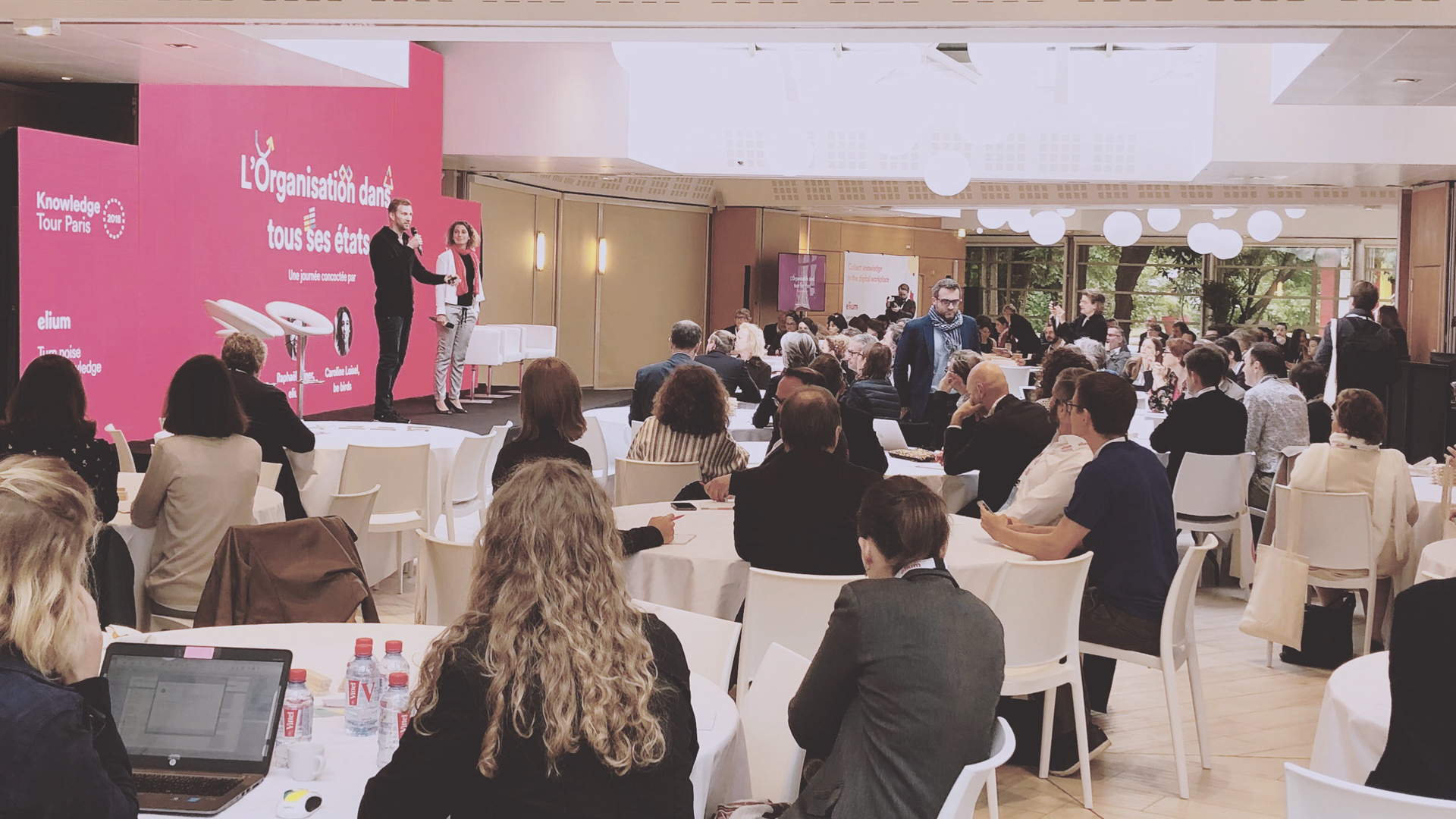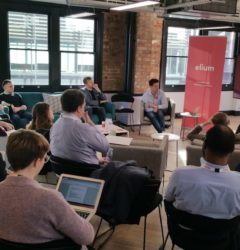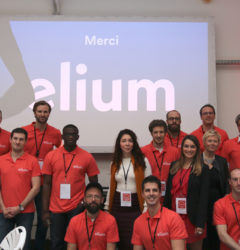08 Jun

Last month, for the third edition of the Knowledge Tour, we were joined by over 200 guests, 20 speakers and a few ducks in the heart of the Bois de Vincennes in Paris. Surrounded by nature, our day centered on the future of work, the process of digital transformation and collective innovation, with the perfect relaxed atmosphere to share knowledge and exchange ideas.
The focus of the Knowledge Tour was to embrace the four characteristics emerging in organisations, and discuss approaches to digital transformation. The desire to be agile, learning, quantified and responsible organisations was at the heart of our attendees’ transformational missions. Our discussions helped build new connections and highlighted our attendees’ personal challenges. After covering each dynamic with our guest speakers, we held a workshop in which we asked each attendee to rethink their organisation’s culture, and to share their thoughts with those on their table.
Below are our main takeaways from the day to help you on your own digital transformation journey, with insights from our keynote speakers.
But maybe you might first want to have a look at this small recap video showing you the overall atmosphere of this amazing day.
Facts, information, and skills acquired through experience or education. With expert speakers and guests, the tour enabled us to share our experiences, with inclusive insights and feedback.
A journey for pleasure in which several different places are visited. Beyond destinations, we like to think of these ‘places’ as key landmarks in the knowledge sharing journey. Let us be your guide…
Ditch the distractions & focus on the organisation as a whole
As we enter the era of artificial intelligence, technology will be even more prevalent in our daily lives. With multiple social networks, new forms of communication and changing behavioural norms, it will be easy to get sidetracked by all the noise. So, to get around this, we need to start big, and focus on the main element we all want to transform – our organisation as a whole. Not just one department, a business line, or a specific team. No. All of it; its structures, cultures, forms of leadership, practices and processes.
To transform an organisation, it is necessary to ask the right questions from the start, to know what needs to change, and how to open up the ecosystem. Erwan Kerleroux, co-founder of CrazyWize, agrees, “it is important to be pragmatic and to initiate MVT (Minimum Viable Transformation), i.e. to identify possible changes in the very short term”.
Digital transformation takes time, but digital tools can contribute instantly
Our Knowledge Tour speakers, coming from many large companies (including SNCF, InExtenso, La Poste Group, Publicis Media, Covea, OVH and Tetrapak), reinforced the idea that for transformation to work, it needs to be systemic in nature. Transformation can take time, up to 7 years on average according to several stakeholders, however, the digital tools can be set up in the short term. Having transparency within the organisation is vital in order to overcome this paradox.
Alongside a systemic approach, the speakers also championed the importance of having ‘atypical’ profiles within an organisation. These individuals will dare to approach problems from a new angle and are bold enough to test their ideas. We also all need to be open to feedback, as explained by Laure Debos, Director Analytics, Research & Insights at Publicis Media, as wherever the ideas emerge from, it is this crossroads which is the key to change. Real spaces, where there is the opportunity for debate and for risks to be taken, allow for a stronger transformation and a more inclusive future.
To overcome our fear of technology, we need to focus on the individual
In the future, we will need to work together with machines, that’s for sure. But we shouldn’t be too scared by this growth in technology, says Laurence Devillers, Professor at University Paris-Sorbonne IV – LIMSI-CNRS, “The machines understand, but without really understanding. They do not have proper attention, do not understand emotions, have neither moral nor phenomenal consciousness”. Therefore, instead of fearing this challenge, we need to embrace it.
For us at Elium, we feel it is important to establish a connection between the world of technology and ourselves. It’s the person using the tool who makes the difference – the tech tools are simply there to support us, to accelerate our progress and make us more efficient.Erwan Deveze, from Neuroperformance Consulting, drew our attention to the nature of the human brain, which is constantly changing, for better or for worse. To create new synaptic connections, he says, you have to learn every day. So, to transform an organisation, we must also learn from each other every day, and actively think about the human relationships involved. We must listen to each other and promote support – even in the face of failure.







